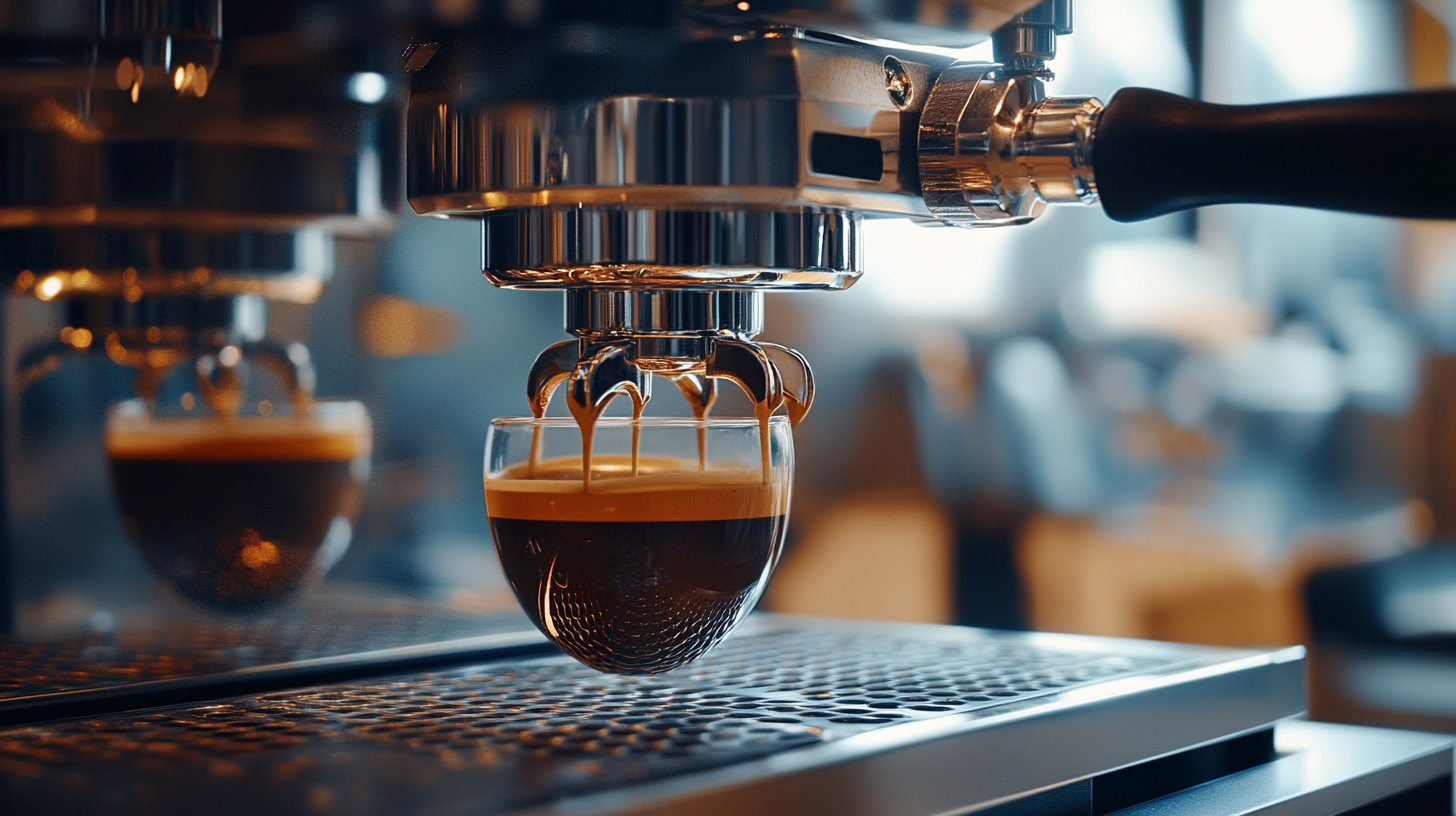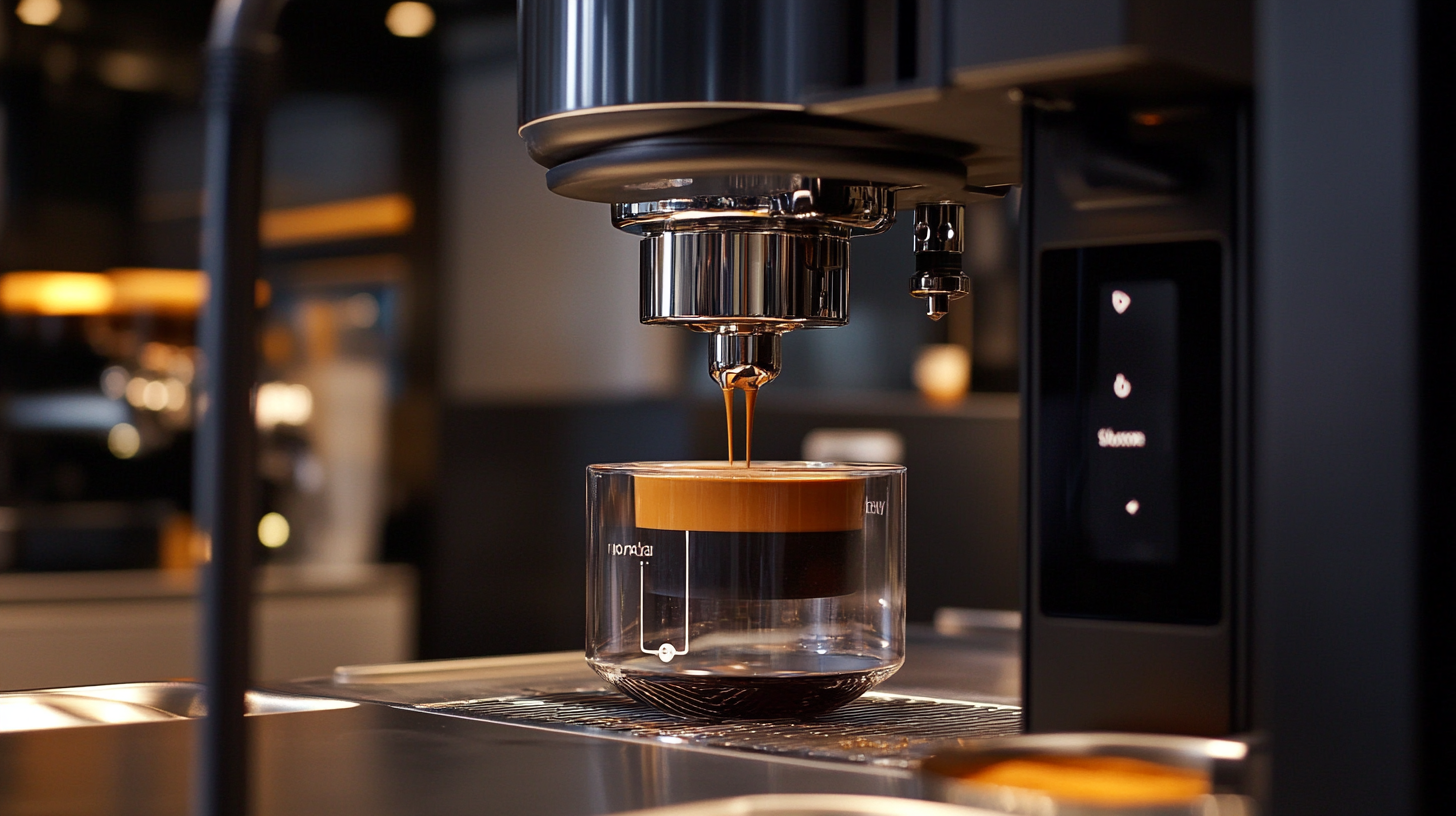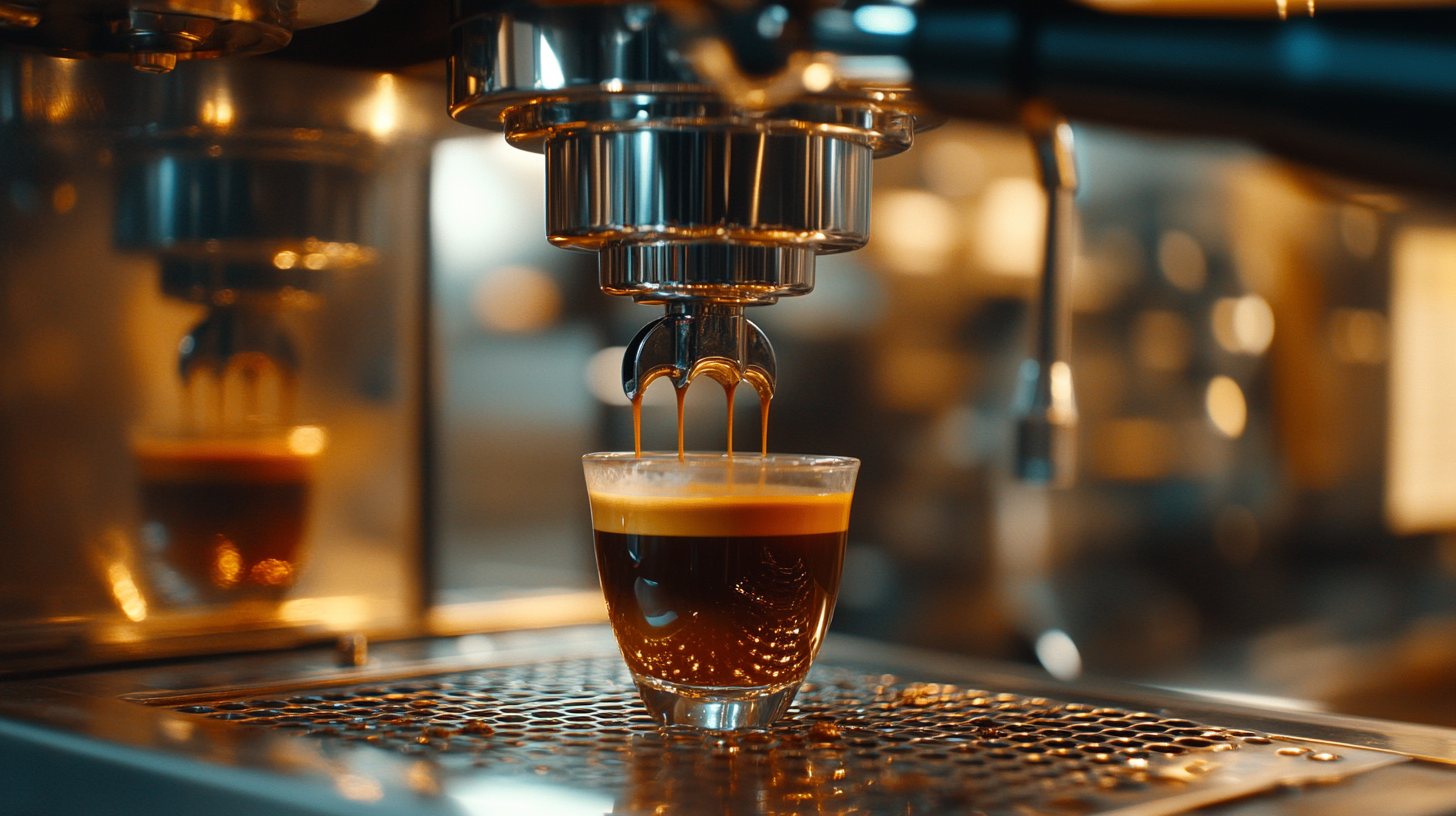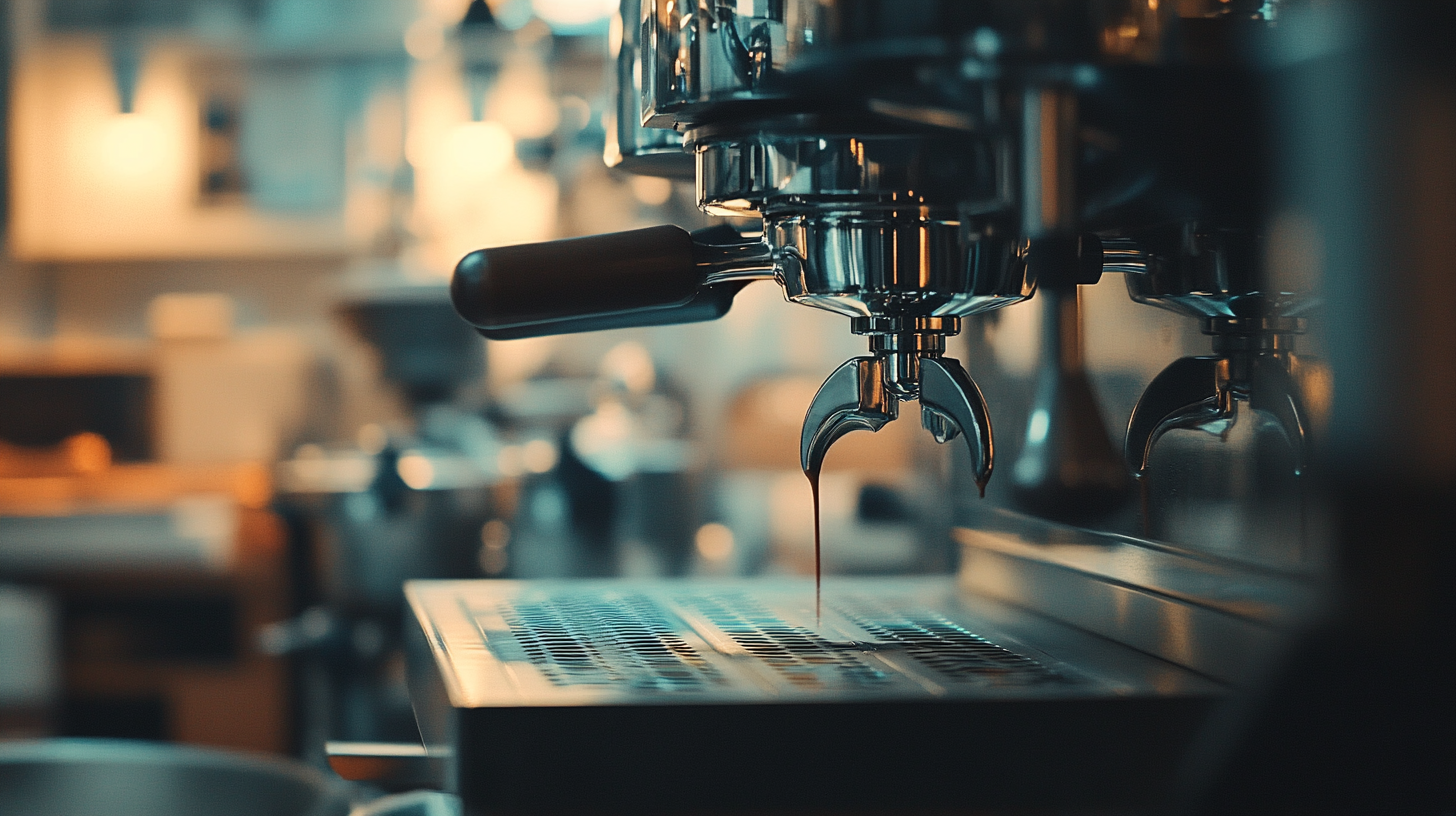In recent years, the coffee industry has witnessed a remarkable evolution driven by innovation and technology. According to a report by IBISWorld, the coffee shop market in the United States has exceeded $45 billion in revenue, reflecting an increasing demand for high-quality coffee experiences. As consumer preferences shift towards speed and efficiency without compromising taste, Cafe Robot Espresso technology emerges as a game-changer. This cutting-edge advancement not only aims to streamline coffee preparation but also ensures precision and consistency in every cup, addressing the multifaceted needs of modern coffee enthusiasts.
As the trend of automation expands within the food and beverage sector, Cafe Robot Espresso systems are at the forefront, harnessing the power of artificial intelligence and robotics to enhance barista capabilities. A study by Market Research Future suggests that the global coffee machine market is projected to grow at a CAGR of 5.8% from 2021 to 2028, emphasizing the importance of incorporating technological innovations to meet the evolving expectations of consumers. The next era of Cafe Robot Espresso technology promises not only to transform the way coffee is crafted but also to redefine customer experiences, paving the way for a smarter, more efficient coffee culture.

As cafes evolve to meet the demands of an increasingly tech-savvy clientele, the rise of automated baristas presents a unique transformation in the coffee experience. These cutting-edge robots are not just replacing human baristas but enhancing the overall interaction customers have with coffee. Imagine walking into your favorite café and being greeted by a sleek, efficient robot that takes your order, grinds the beans, and brews your coffee to perfection—all while you engage with a digital interface that allows for customization down to the last detail. The technology behind these automated systems is advancing rapidly, delivering consistency and precision that can be difficult to achieve by hand. Automated baristas can replicate complex recipes with mathematical accuracy, ensuring that every cup of coffee meets the same high standard. Additionally, these machines can analyze data on customer preferences, allowing them to suggest your next ideal brew based on prior selections. This level of personalization elevates the coffee-drinking experience, making it more interactive and tailored to individual tastes. Furthermore, the introduction of robot baristas addresses the labor challenges faced by the hospitality industry. With the ability to function efficiently during peak hours, these machines help alleviate the burden on human staff, allowing them to focus on customer service and enhancing the ambience of the café. As technology continues to blur the lines between human and machine, the new era of automated baristas promises to deliver not just coffee, but a novel experience that resonates with today's dynamic consumer culture.

The evolution of robot espresso machines marks a significant leap in the intersection of automation and café culture. These machines harness cutting-edge artificial intelligence and robotics to deliver an exceptionally consistent coffee experience. By understanding the intricate brewing process, these smart devices can analyze various parameters such as water temperature, grind size, and extraction time to create the perfect cup of espresso tailored to individual preferences. The way these machines adapt and learn from user interactions is reshaping traditional coffee-making paradigms.
At the core of their functionality lies advanced machine learning algorithms which enable the robots to learn from human demonstrations. For instance, a recent advancement in humanoid robotics has seen a machine called Figure 01, designed to make coffee by observing baristas. This innovative approach not only enhances the quality of the coffee produced but also introduces an element of personalization as the machine engages with customers in conversation while preparing their drinks. By combining the latest technologies in artificial intelligence with the art of coffee-making, these machines are positioned to significantly elevate the café experience, making it more interactive and enjoyable.
As robotics technology progresses, the future appears bright for café automation. The integration of AI not only streamlines the brewing process but also ensures that each cup is a result of precise calculations and adjustments tailored to the preferences of the consumer. As we move deeper into this era of café robot espresso technology, the potential for both quality and efficiency offers a compelling glimpse into the future of how we enjoy coffee.

As the coffee industry continues to evolve, the introduction of cafe robotics is proving to be a game-changer. One of the most significant advantages of integrating robots into coffee-making processes is the undeniable efficiency they bring to cafes. Robots can operate with incredible speed and precision, preparing multiple orders simultaneously without compromising quality. This rapid output not only enhances customer service but also allows baristas to focus on more complex tasks, creating a more streamlined workflow and ultimately increasing overall productivity.
Consistency is another critical benefit of utilizing cafe robotics. Unlike human workers, robots can deliver the same perfect cup of coffee time after time. They follow programmed recipes and use precise measurements, ensuring that every espresso shot maintains the identical flavor profile and brewing time. This eliminates the variability often introduced by human error and provides customers with a reliable experience, fostering brand loyalty and encouraging repeat business.
Cost-savings are also a significant factor in the rise of cafe robots. Although the initial investment in robotics technology can be substantial, the long-term financial benefits are substantial. Robots reduce labor costs, as fewer employees are needed during peak hours. Moreover, they help minimize waste through accurate ingredient usage, and their ability to work long hours without breaks significantly enhances operational efficiency. As cafes begin to recognize these advantages, the trend towards automation in coffee making is likely to accelerate, marking a new era in the industry.

The rapid advancement in cafe robot espresso technology promises a revolution in coffee making, yet significant challenges remain in its widespread adoption. A report by MarketsandMarkets indicates that the global café automation market is projected to reach USD 2.9 billion by 2025, growing at a CAGR of 14.6%. Despite this promising outlook, many establishments hesitate to invest in such technology due to initial costs, concerns over reliability, and the fear of losing the personal touch that traditional baristas provide.
One major barrier is the technology's integration into existing café workflows. A recent study from IBISWorld highlights that while 67% of cafes express interest in automation, only 22% have implemented any robotic systems. Many owners are apprehensive about the training requirements for staff and the potential disruption to established customer interaction. Additionally, the need for maintenance and technical support can deter owners from making the leap.
Another concern involves the consistency and quality of coffee produced by robotic systems. Consumer Reports suggests that 72% of coffee drinkers prioritize flavor, and many worry that a machine cannot replicate the nuanced techniques of an experienced barista. To ameliorate these fears, companies developing espresso robots must focus not only on technology but also on building trust with potential users through transparent operations, robust training modules, and consistently high-quality output. As these barriers are addressed, the pathway toward a more automated coffee-making future will become more viable.
The landscape of coffee making is evolving rapidly, driven by technological advancements and changing consumer preferences. As per a recent report by the National Coffee Association, about 79% of Americans consume coffee regularly, and with this high demand, cafes are turning to innovative solutions to streamline operations and enhance customer experiences. One such solution is the integration of robotic technology in espresso making. The ability of robots to deliver consistent quality and precision is transforming how cafes operate, offering speed without compromising on the artisanal qualities that coffee aficionados cherish.
Automation in coffee brewing is not confined to just efficiency; it also opens doors to personalization. A study published in the Journal of Food Science highlights that 67% of millennials are willing to pay more for a personalized coffee experience. Cafés are leveraging this trend by programming robots to create tailored coffee recipes, allowing customers to customize their beverages to suit their unique preferences. This personalized touch, coupled with the efficiency of automated brewing, positions cafes to attract a wider demographic, especially those looking for quick yet high-quality coffee options.
Emerging trends also indicate a growing interest in sustainability within the coffee industry. According to a report by Mintel, 30% of coffee drinkers express a preference for brands that use environmentally friendly practices. Robotic coffee makers are designed with energy efficiency in mind, optimizing the use of resources throughout the brewing process. Additionally, many new cafes are investing in machinery that minimizes waste, aligning with consumer values and showing a commitment to sustainable practices. As the next generation of cafes emerges, the integration of robotics not only caters to a tech-savvy clientele but also supports a sustainable coffee culture that resonates with modern consumers.